Four people met in a Master of Enology and Viticulture in Madrid. Sharing the same passion, after making harvests around the world, they decide to join together to create a winery from scratch in the Matarraña Region.
What will this special place have?
The Matarraña Region has a long history as a wine-growing area.
During the Middle Ages, the Turolese town of Peñarroya de Tastavins, less than dies kilometers from us, was a very important center in the wine trade, since there the Catalan and Valencian buyers met with the Aragonese and Navarre vendors, to “test them.” Hence the name Tastavins River, meaning “wine tasting.”
The vineyards were part of the agricultural landscape of the Matarraña Region. In the years 70 there were thirteen thousand hectares dedicated to the vine in the Lower Aragon of Teruel. The vine was the first cultivation by Cretas, Valderrobres and Fuentespalda. Until the years 90, when problems with harvests and marketing led farmers to start almost all vineyards, replacing them with other crops such as almentro and olive.
At present wineries are emerging in Matarraña that bet on the production of quality wine, to recover that ancient wine culture that had been lost, rescuing the old vines and native varieties of the area almost disappeared, like the hairy garnacha. We couldn’t help but join that cause.
In April 2000 it was decided to create the first Wine Fair in Cretas, to promote the wines of the Region of Matarraña. Fair held once a year until today.
Four people met in a Master of Enology and Viticulture in Madrid. Sharing the same passion, after making harvests around the world, they decide to join together to create a winery from scratch in the Matarraña Region.
What will this special place have?
We defend the least intervention, we perform only the works that are necessary, almost all of them in a manual way. We avoid soil erosion, maintain its natural vegetation cover. We let it grow during the winter and reap it when the plant begins to wake up to avoid competition for nutrients and water.
The grass itself becomes the compost of the vineyard itself. When you are certified in ecological, we limit the use of phytosanitary. We treat only when necessary with the necessary dose with organic products. We can reduce these treatments with good management in the vineyard providing greater aeration in the plant. In this way other life forms such as insects are respected, where some of them help us to fight other pests. We have a supportive irrigation, with the increase in drought and the increase in temperatures we saw necessary. We only water when necessary.
The winery and vineyards are located on the same estate, the “Finca Mas de Llucia.”
We produce only with our own grapes, as we want to offer wines that express the taste of the land with the least impact on the environment. The wines we produce can be tasted by participating in the experiences offered by the winery or in the restaurant of the hotel that is also located in that farm.
Before this project was born, there were already vines planted in the “Finca Mas de Llucia” since 1972. These vines, more than fifty years old, we rescue them and now allow us the opportunity to elaborate with them Senglar and Saviesa. The wines made with old strains have a greater complexity than that of a young plantation, having less production their clusters, their concentration is greater and therefore they are so special.
The decision to choose native grape varieties allows these plants to adapt and develop better with the least intervention since they are found in their habitat, in this way it is a more sustainable crop.
The “Finca Mas de Llucia” houses six hectares of vineyards in production, with native varieties such as Cariñena, Garnacha Tinta, Macabeo and Garnacha blanca.
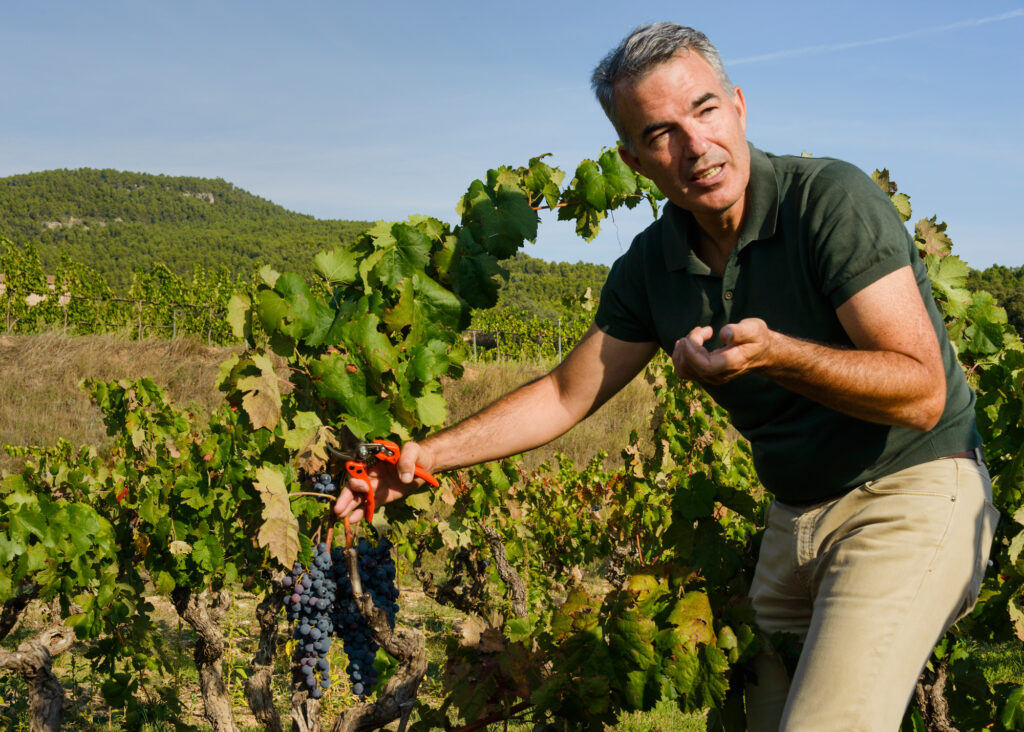
The first step to creating something happens through imagination. Eyes that see beyond what appears to be in front of your eyes. We would like to think that we chose the place to develop this project, but we would be delusional. We didn't choose him, we fell in love with Matarraña.
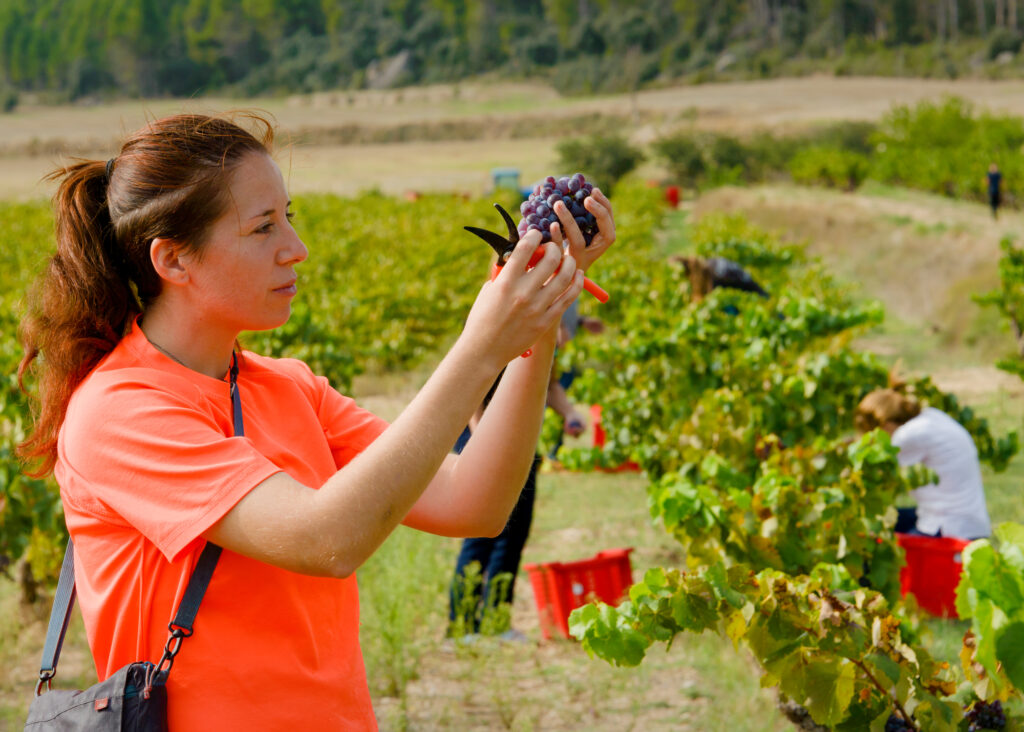
Motivation and illusion is the engine of this project, but it can be ephemeral in hard times. Field work can be very physical, but also very mental. Motivation and illusion must be nurtured and complemented by hard work. They don't work if you don't have a plan and you meet it day after day.
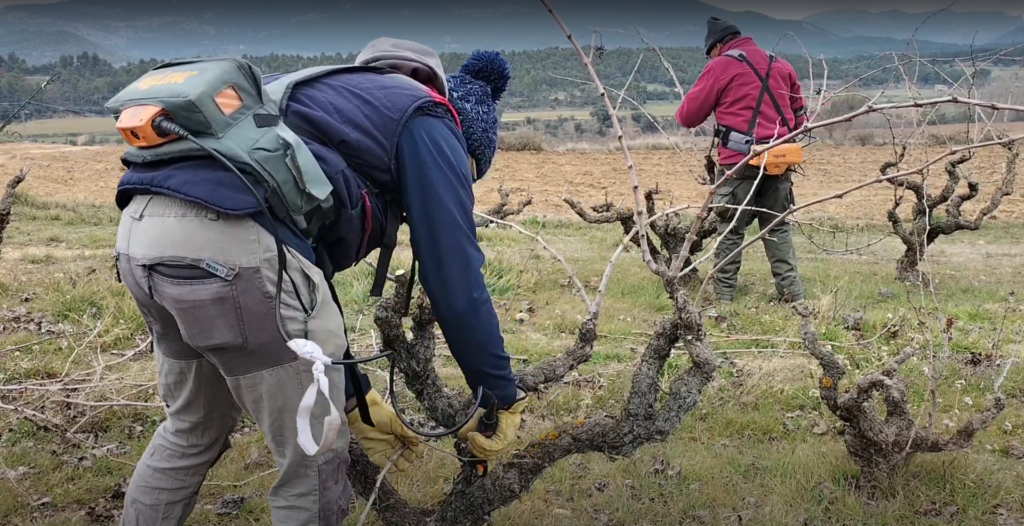
This project is not possible without the cozy people of Matarraña: farmers, workers, restaurants, suppliers, local wineries and neighbors. They know this land better than we do, help and guide us along the way.
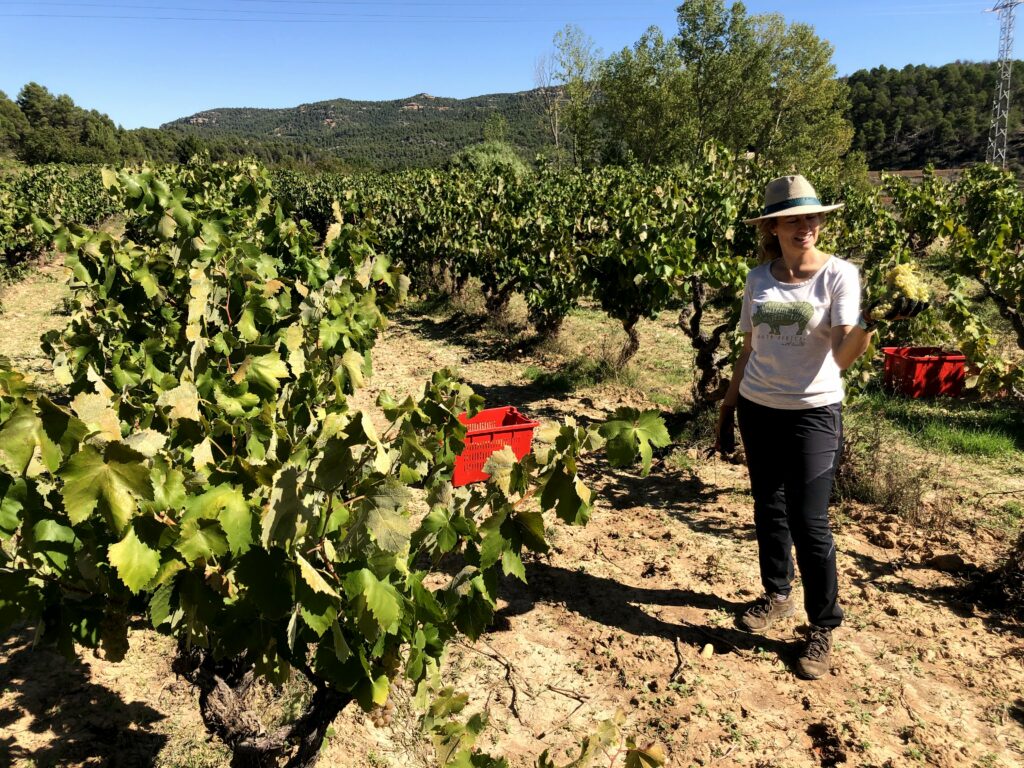
In every project it is easy to get lost in the multitude of details, jobs and unforeseen in the vineyard or in the winery and plays with our emotions willing to throw us. It is important, despite them, to be calm, to look in perspective and remember who we are.
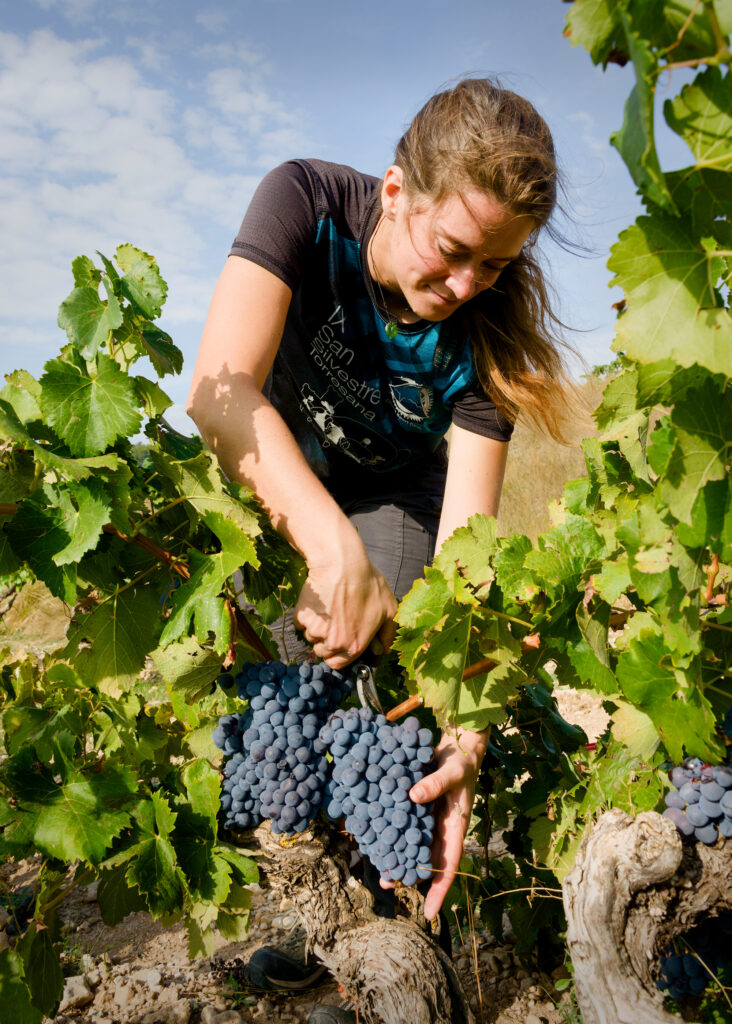
Focusing on the small details is essential to make a difference within the competitive world of wine. We try to take care of every step we take from the vineyard to the bottling. Continue training and questioning, knowing year after year our vineyard, looking to improve year after year a little more.